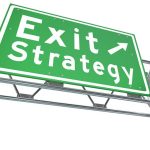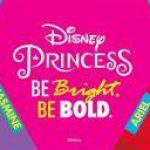
Taming the Dragons: A Journey of Healing
Navigating the path of healing from anxiety, trauma, grief, and depression is a journey—a process of growth, understanding, and resilience. I consider myself blessed to have an overflowing toolbox, filled with resources I’ve gathered since my early 20s.
This morning, I felt drawn to explore one of the tools we use with our patients at Amen Clinics: Know Your Dragons.
In Dr. Daniel Amen’s illuminating book, Your Brain Is Always Listening, he introduces the concept of identifying and understanding your dragons. These metaphorical dragons represent emotional struggles rooted in past experiences, and Dr. Amen offers a complimentary assessment online at www.knowyourdragons.com. I encourage you to take this insightful step toward self-awareness and growth.
Reflecting on my own journey and taking the assessment this morning, I found my results unsurprising. My dragons are:
- Abandoned, Invisible, or Insignificant Dragons
- Inferior or Flawed Dragons
- Responsible Dragons
- Angry Dragons
- Grief and Loss Dragons
- Ancestral Dragons
These dragons, tied to memories and past events, have the potential to breathe fire across anyone’s emotional landscape. Left unchecked, they can:
- Seize happiness
- Fracture relationships
- Impair health
- Disrupt stress-coping mechanisms
- Stifle one’s destiny
When these dragons reign over the mind, they contribute to mental health challenges like anxiety, depression, and addictions, ultimately impacting every facet of life.
Focusing on the Grief and Angry Dragons
Considering the unexpected loss of my brother, I’ve chosen to focus on two specific dragons: the Grief Dragon and the Angry Dragon.
The Grief Dragon
Elizabeth Kübler-Ross, a Swiss psychiatrist, first introduced the five stages of grief in her book, On Death and Dying. These stages—denial, anger, bargaining, depression, and acceptance—offer a framework for understanding the complex emotions tied to grief.
The Grief Dragon emerges from universal experiences such as:
- The loss of a loved one
- The disappearance of something significant
- The dissolution of cherished ideals
This dragon brings with it a range of emotional and physical responses, including:
- Emotions: Shock, sadness, denial, despair, anger, guilt, loneliness, helplessness, and yearning
- Physical Symptoms: Anxiety, sleeplessness, memory lapses, and sensations like difficulty breathing
The Angry Dragon
The Angry Dragon, meanwhile, arises from experiences of hurt, shame, bullying, abuse, or disappointment. It often stems from situations where others modeled angry behavior or overwhelmed us with words or responsibilities.
Triggers:
- Reminders of past hurts or shame
- Experiences of disappointment
- Feeling overwhelmed by the expectations or words of others
Reactions:
- Emotional responses like irrational rage, frequent irritability, and rudeness
- Physical symptoms such as increased heart rate, sweating, cold hands, muscle tension, goosebumps, dizziness, and confusion
Embracing the Journey of Growth
Healing from anxiety, trauma, grief, and depression is a courageous act. It is a journey of resilience, introspection, and ultimately, transformation—a true Gift of Growth.
What tools or resources have you used to help with grief or anger? Whether it’s journaling, therapy, mindfulness, or simply leaning into the support of loved ones, every step you take toward taming your dragons is a victory.
Here’s to embracing your journey and taming your dragons—one dragon at a time.






